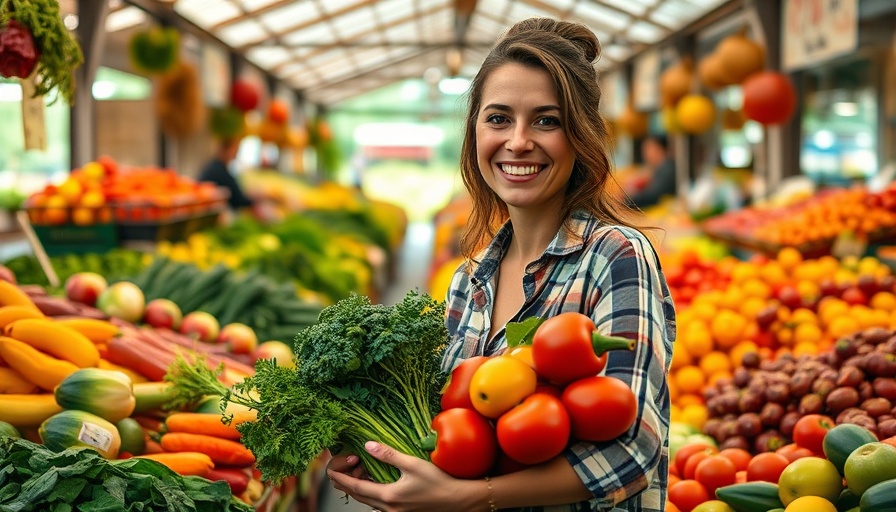
Why Farmer's Markets Are Crucial for Sustainability
Farmer's markets have emerged as vital hubs not only for fresh produce but also for promoting environmental sustainability. By supporting local agricultural practices, these markets contribute significantly to healthier ecosystems and a sustainable food supply, making them indispensable in the fight against industrial agriculture’s environmental impact.
Boosting Local Economies and Small Farmers
Every purchase made at a farmer’s market puts resources directly into the hands of local farmers and small-scale producers. This not only helps maintain community livelihoods but also strengthens local economies. By prioritizing local produce, consumers reduce reliance on large industrial farms that often employ unsustainable practices. The benefits ripple through the community, preserving age-old farming techniques and minimizing the ecological footprint.
Minimizing Carbon Footprints by Shopping Local
Shopping at a farmer’s market significantly reduces the distance food travels from farm to table, thereby lowering greenhouse gas emissions. Unlike conventionally sourced products found in grocery stores, which may have journeyed thousands of miles, local produce helps cut down on transportation costs, benefiting both the planet and your palate. Fresh foods that are not subjected to long periods of transportation maintain their flavor and nutritional integrity, offering a superior product.
Seasonal Eating and Sustainable Practices
Farmer's markets empower consumers to embrace seasonal eating, which is not only better for personal health but also for the environment. Eating according to the seasons ensures that produce is harvested at its peak, often without the use of energy-intensive growing methods. This approach supports biodiversity, mutually benefits both farmers and consumers, and brings diverse flavors to tables.
Green Practices to Adopt While Shopping
Engaging in sustainable habits while visiting your local farmer’s market can enhance your eco-conscious lifestyle. Bringing your own reusable bags and containers minimizes waste and reduces the need for single-use plastics. Additionally, planning your meals and making a detailed shopping list ensures that you do not over-purchase items that may go to waste, thus promoting responsible consumption.
Creating Community Through Local Markets
Farmer's markets serve as community gathering spots where people can connect over their mutual love for fresh, sustainable food. They are often the settings for workshops and events focused on sustainable living, giving attendees the chance to learn and share best practices. This engagement fosters a culture of accountability and transparency, benefiting not just individuals but communities at large.
Conclusion: Take Part in Sustainable Living
By exploring your local farmer’s market, you’re contributing to a movement aimed at fostering healthier communities and environments. Small actions like supporting local farmers and adopting sustainable shopping habits can create a substantial positive impact on your ecosystem.
 Add Row
Add Row  Add
Add 




Write A Comment